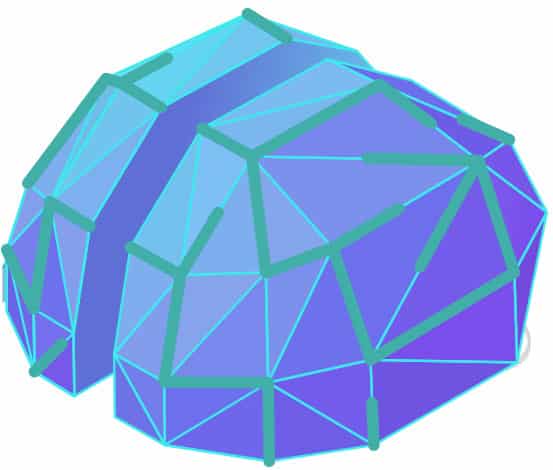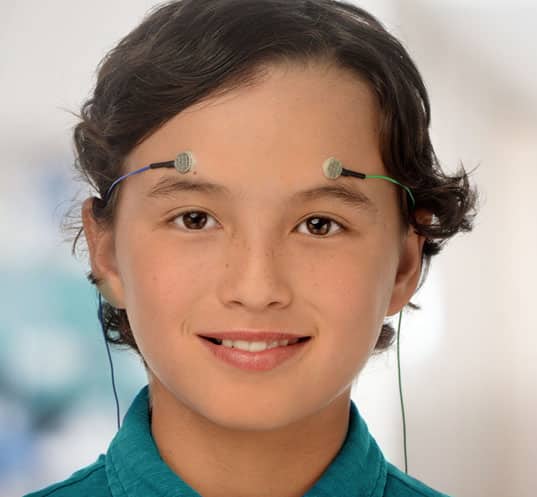LANC, Traumatic Brain Injuries and Concussion
While the term “Traumatic Brain Injury” sounds like a terrible, life-ending event, Traumatic Brain Injury (TBI) is very common. The Center for Disease Control (CDC) defines a Traumatic Brain Injury as: “a disruption in the normal function of the brain that can be caused by a bump, blow, or jolt to the head, or penetrating head injury.” TBI can manifest as anything from “a brief change in mental status or consciousness” to coma or amnesia. The CDC estimates that over 1.7 millionTBIs occur every year.
The most common form of TBI is a Concussion. The CDC defines a Concussion as a TBI “caused by a bump, blow, or jolt to the head or by a hit to the body that causes the head and brain to move rapidly back and forth. This sudden movement can cause the brain to bounce around or twist in the skull, creating chemical changes in the brain and sometimes stretching and damaging brain cells.” A blow to the head does not need to feel “severe” or cause unconsciousness to result in TBI. All that has to happen is rapid brain movement within the skull. Symptoms of a concussion include (but aren’t limited to) headache, nausea, balance issues, difficulty remembering, trouble concentrating, irritability and depression.
More severe TBI can result in difficulties that are more severe and more long-term. Almost every voluntary function of one’s nervous system has the potential to be affected by moderate to severe TBI. In any event, TBI can throw the brain’s electrochemical composition out of balance.
Contact (323) 705-3031 to Schedule an Appointment & Get Started On TBI & Concussion Help Today!
Traditional Options for TBI and Results
The traditional option for a concussion is rest until the symptoms wear off and then a gradual return to normal activity. Long-term effects from single concussions are rare; although, the effects from multiple concussions will add up over time. For moderate to severe TBIs, however, the outlook can be different. Since almost any voluntary nervous function may be affected by moderate or severe TBI, the long-term effects can vary significantly. Cognitive difficulties (remember or processing, speech difficulties, physical difficulties, such as impaired balance or loss of fine motor control. In rarer cases, emotional issues like mood swings and even changes in personality can result from moderate or severe TBI. In all of these cases, the standard option is therapy appropriate to the individual’s condition, such as Speech Therapy or Occupational Therapy. These types of therapy are very time-consuming and require a high level of commitment from the client.

“After all the occupational hazards that I have gone through as a professional fighter, I was worried that I would never be the same again. But thanks to Direct Neurofeedback, after my first session I immediately felt back to my peak performance self with diminished brain fog, clarity, and focused."
– M. Raees, Los Angeles Patient
How does DNF relate to TBI?
The human brain is both flexible– able to adapt to changes – and resilient – able to recover from injury. All of the brain’s functions are electrochemical: the chemicals that make up your brain serve to transmit electrical impulses through the brain and then to the body. With repetition, neural pathways develop that become the constant route by which those impulses travel. TBI can cause chemical changes in the brain that impair both its flexibility and its resiliency. These changes can disrupt long-established neural pathways. Direct Neural Feedback stimulates the brain and causes it to re-evaluate its neural pathways. Useful pathways are kept while damaged or counter-productive pathways are used less and newer, more effective pathways are formed. Over time, the old ineffective pathways are no longer used and the new pathways take their place. Similarly, DNF helps the brain’s overall chemical composition to re-balance itself.
DNF has been found to be effective in alleviating at least some of the symptoms of TBI. Studies of military veterans with TBI, NFL players suffering the effects of multiple concussions, and people with injuries sustained in everyday life have shown DNF to be effective in alleviating some of the symptoms of TBI.

How LANC Can Help With TBI
Note: ANY TBI involves physical damage to the brain. If you have recently suffered a TBI, be sure that you have received allnecessary medicalcare before working with LANC.
Dealing with the long-term effects of TBI can be particularly frustrating to some. Actions that were once done without a thought are suddenly difficult or impossible. The disabilities that may arise as a result of TBI may affect one’s work to the point of complete disability. While physical/speech/etc therapies can be effective, the process can be grueling and serve as a constant reminder of the subject’s limitations and possibly of the incident that caused the injury.
With LANC’s system, the session is passive – the client simply sits back and allows the machine to do its work. The brain then adjusts itself without effort on the client’s part, alleviating frustration and anxiety. LANC’s system does notreplace the therapies mentioned above. What LANC does do is allow therapy to progress at a faster rate. Therapies create new neural pathways, but do so very slowly. LANC’s DNF program stimulates the brain and allows these neural pathways to develop faster. LANC can also help with associated anxiety, depression and frustration. Since the type of incidents that lead to moderate and severe TBI can be quite traumatic, LANC’s program can help with associated Post Traumatic Stress Disorder (PTSD) as well.
Contact (323) 705-3031 to Schedule an Appointment & Get Started On TBI Concussion Help Today!

Start TBI Concussion Help
How to Get Started w/ Direct Neurofeedback
- Call our 24hr appointment line at (323) 705-3031 to schedule your $49 Special Initial Consultation and Session
- Fill out New Client Form
- Experience your first session of Direct Neurofeedback and map out your customized approach to achieving brain wellness with your neurocoach
A LANC Direct Neurofeedback practitioner will be happy to schedule your initial one-hour session. During this appointment, your practitioner will discuss your condition, address your concerns, and perform your first Direct Neurofeedback session. This initial intake session costs only $49.00 and is the first step towards returning to a more relaxed, healthier, confident you.
LOS ANGELES NEUROFEEDBACK CENTER TEAM
WEST LA OFFICE
12121 Wilshire Blvd., Suite 810, LA, CA 90025
Phone: (323) 705-3031
WORKING HOURS
Monday – Friday: 7:00am – 7:00pm
Saturday: 8:30am – 7:00pm
Sunday: 9:00am – 6:30pm
SANTA BARBARA OFFICE
2329 Oak Park Ln., #1, Santa Barbara, CA 93105
Phone: (805) 322-4375
santabarbaraneurofeedbackcenter.com
WORKING HOURS
Tuesday – Saturday: 10:00am – 4:00pm
Sunday – Monday: 12:00pm – 6:00pm
SCHEDULE APPOINTMENT
To schedule an online appointment with a neurofeedback provider or neurocoach specialist at our West LA or South Bay offices, please click on the button below.









